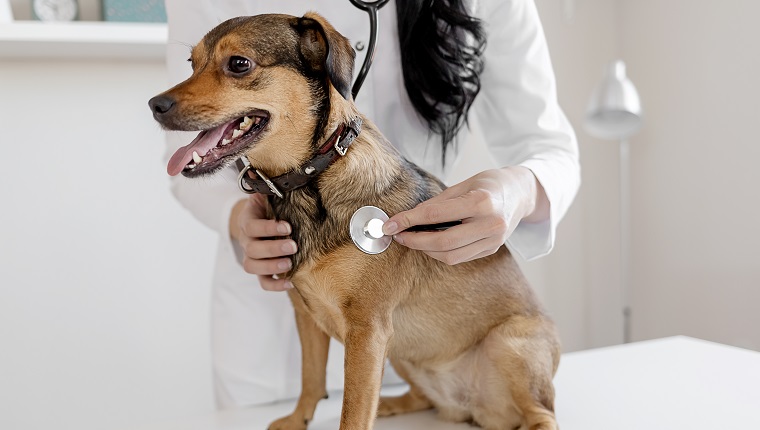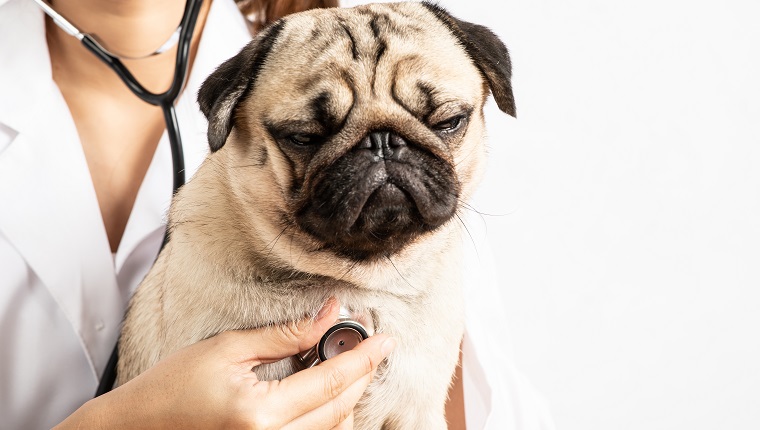Rhabdomyoma in dogs refers to a benign tumor that mostly appears in the heart. The condition is often classified as being congenital, which means a dog is born with it.
When suffering from this condition, many dogs will display similar symptoms to other types of congestive heart issues. In general, this is a relatively rare condition.
If you see signs that your dog might be suffering from heart issues, then you must consult your veterinarian for a proper diagnosis and course of treatment. Here’s what you should know about the symptoms, causes, and treatments of rhabdomyoma in dogs.
Symptoms Of Rhabdomyoma In Dogs
Rhabdomyoma in dogs can result in a number of symptoms. Some of the most common symptoms include:
- Becoming reluctant to exercise
- Pain around the chest area
- Acting lethargic
- Swelling around the affected area
- Shortness of breath
Causes Of Rhabdomyoma In Dogs

Rhabdomyoma in dogs is considered to be idiopathic, which means that there is no confirmed cause for the condition.
In many cases, the condition is suspected to be congenital.
Treatments For Rhabdomyoma In Dogs
If you suspect that your dog is suffering from rhabdomyoma, your veterinarian will want to ask about your dog’s full medical history. They’ll also carry out a full physical examination, along with blood and urine tests.
In most suspected cases, the use of X-rays and echocardiograms can help to confirm a diagnosis. Vets can also carry out a biopsy of any tumors they find.
When it comes to treatment, medical management often provides a safer option than surgery. Switching to a low sodium diet can help a dog deal with the condition, while ACE inhibitor medication can also often help better manage the flow of blood in the body.
As ever, if your vet prescribes your dog any medicine, it is vital that you stick to the precise dosage and frequency instructions and complete the full course of medication.
In general, dogs diagnosed with this condition should keep up regular visits to their vet to monitor the state of their health. At first, these visits might take place every month.
Has your dog developed rhabdomyoma? How does your vet recommend that you manage the condition? Tell us all about it in the comments below.









